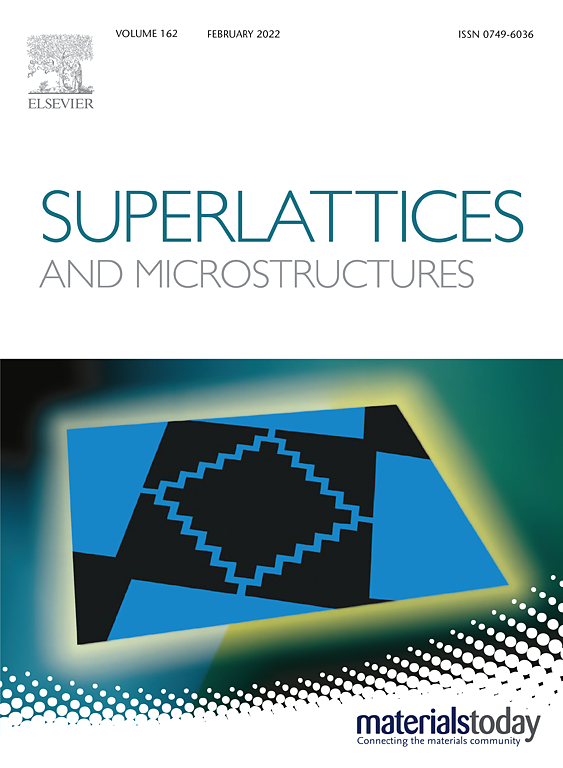利用Auto-CLAHE增强进动电子衍射数据中的衍射信号,改善了取向映射
IF 3.3
3区 物理与天体物理
Q2 PHYSICS, CONDENSED MATTER
引用次数: 1
摘要
进动电子衍射(PED)是一种在纳米尺度上揭示样品晶体取向的有力技术。然而,衍射图样的质量对取向分度的质量有很大的影响。在本研究中,我们开发了一种名为Auto-CLAHE(自动对比度限制自适应直方图均衡化)的新算法,该算法使用对比度限制自适应直方图均衡化(CLAHE)自动增强低强度衍射图案信号。增强的程度是根据衍射图样的总体强度动态调整的,对斑点较少(即远离区轴)的图样进行较大的增强,对斑点较多(即在区轴处)的图样进行很少或不进行增强。通过提高低强度衍射斑点的可见性,Auto-CLAHE显著改善了实验获得的和模拟衍射图案之间的模板匹配,从而显著提高了取向图的质量和降低了噪声。我们期望Auto-CLAHE为PED数据的预处理提供一种高效实用的解决方案,从而能够常规获得更高质量的晶体取向映射。本文章由计算机程序翻译,如有差异,请以英文原文为准。
Improving orientation mapping by enhancing the diffraction signal using Auto-CLAHE in precession electron diffraction data
Precession electron diffraction (PED) is a powerful technique for revealing the crystallographic orientation of samples at the nanoscale. However, the quality of orientation indexing is strongly influenced by the quality of diffraction patterns. In this study, we have developed a novel algorithm called Auto-CLAHE (automatic contrast-limited adaptive histogram equalization), which automatically enhances low-intensity diffraction pattern signals using contrast-limited adaptive histogram equalization (CLAHE). The degree of enhancement is dynamically adjusted based on the overall intensity of the diffraction pattern, with greater enhancement applied to patterns with fewer spots (i.e., away from zone axes) and little or no enhancement applied to patterns with many spots (i.e., at a zone axis). By improving the visibility of low-intensity diffraction spots, Auto-CLAHE significantly improves the template matching between experimentally acquired and simulated diffraction patterns, leading to orientation maps with dramatically higher quality and lower noise. We anticipate that Auto-CLAHE provides an efficient and practical solution for preprocessing PED data, enabling higher-quality crystal orientation mapping to be routinely obtained.
求助全文
通过发布文献求助,成功后即可免费获取论文全文。
去求助
来源期刊

Superlattices and Microstructures
物理-物理:凝聚态物理
CiteScore
6.10
自引率
3.20%
发文量
35
审稿时长
2.8 months
期刊介绍:
Superlattices and Microstructures has continued as Micro and Nanostructures. Micro and Nanostructures is a journal disseminating the science and technology of micro-structures and nano-structures in materials and their devices, including individual and collective use of semiconductors, metals and insulators for the exploitation of their unique properties. The journal hosts papers dealing with fundamental and applied experimental research as well as theoretical studies. Fields of interest, including emerging ones, cover:
• Novel micro and nanostructures
• Nanomaterials (nanowires, nanodots, 2D materials ) and devices
• Synthetic heterostructures
• Plasmonics
• Micro and nano-defects in materials (semiconductor, metal and insulators)
• Surfaces and interfaces of thin films
In addition to Research Papers, the journal aims at publishing Topical Reviews providing insights into rapidly evolving or more mature fields. Written by leading researchers in their respective fields, those articles are commissioned by the Editorial Board.
Formerly known as Superlattices and Microstructures, with a 2021 IF of 3.22 and 2021 CiteScore of 5.4
 求助内容:
求助内容: 应助结果提醒方式:
应助结果提醒方式:


